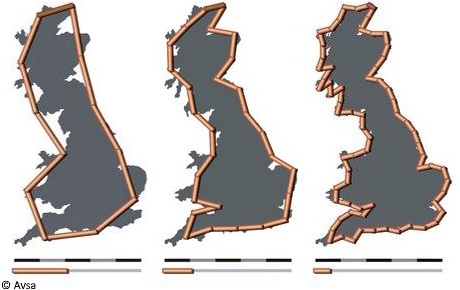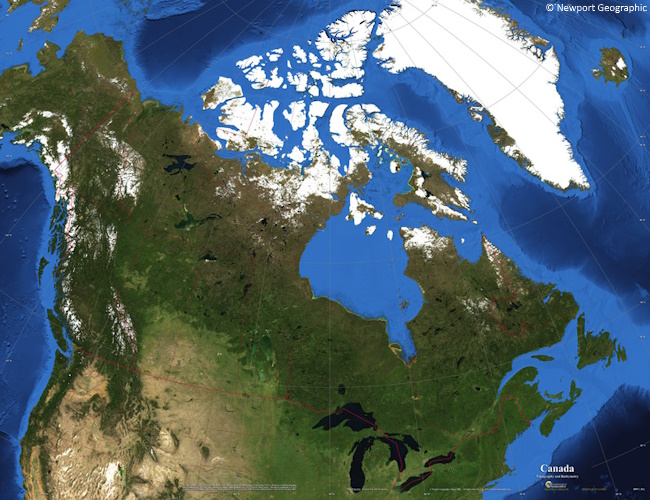The coastline paradox is the principle that is impossible to come up with a definitive measurement of any coastline, due to the impossibility of calculating a standardised way of measuring coastlines.
While several thinkers and philosophers have debated the coastline paradox in past centuries, it gained widespread attention when the British scientist, meteorologist and pacifist Lewis Fry Richardson carried out research in the early 1950s. He was examining the length of borders between countries to investigate the belief that the longer such borders were, the more likely two nations were to go to war. He was surprised to find that the Portuguese said that their border with Spain was 613 miles, but Spain said that the same border was 754 miles. Similarly, the Netherlands said that their border with Belgium was 236 miles long, while the Belgians claimed it was 278 miles. Such discrepancies led Richardson to realise that there was no universal way of measuring borders – the length would vary depending on the unit of measurement used. The exact same principle also applies to coastlines.

This can be seen in the image above. In the first image, the coastline of Great Britain has been measured using 200km (125 miles) measurements. In the next 100km (62 miles) measurements have been used, and 50km (31 miles) measurements in the next. These will all give a different total length of the coastline of Britain, the smaller the unit of measurement used, the longer the coastline will be. This is because the smaller the unit of measurement, the more features such as bay, inlets, harbours and the mouths of rivers will be counted in the overall measurement, increasing the overall length of the coastline.

This can be seen in official publications. While Canada is regarded as having the longest coastline in the world, due to the coastline paradox its total length cannot be definitively ascertained. The CIA World Factbook states that it is 202,080 kilometres (125,556 miles), while the non-profit World Research Institute list Canada’s coastline as being 265,523 kilometres (164,998 miles) long. With Norway, the country recognised as having the second longest coastline in the world, the CIA World Factbook lists it as 83,281 kilometres (51,748 miles), as they also include the islands around Norway, as the World Research Institute do not, they only list Norway’s coastline as being 53,199 kilometres (33,056 miles) long.
Due to the coastline paradox, any definitive claims about the length of a coastline should be treated sceptically.